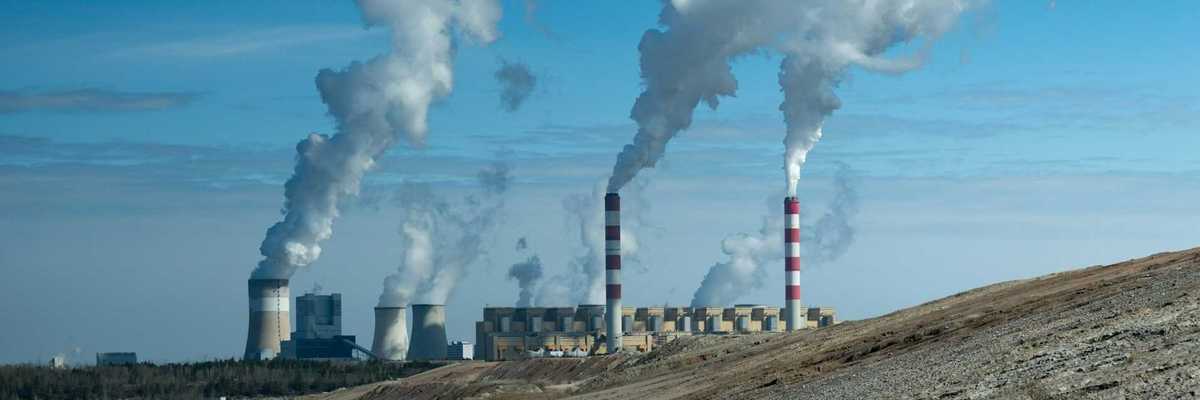law
Judges' interpretations of the law significantly impact climate policy
Presidential environmental regulations often face court challenges, shaping policies on climate, water, air, and wildlife.
In short:
- Environmental rules, regardless of the president, are frequently challenged in court.
- Lower federal courts, where thousands of decisions are made, often have the final say.
- Recent judicial appointments have emphasized partisan alignment over experience, affecting court decisions on environmental issues.
Key quote:
“I do think we need a Supreme Court, appellate courts, trial courts, that respect the law and respect facts and avoid this kind of activist bent.”
— DJ Gerken, president of the Southern Environmental Law Center
Why this matters:
Judges' rulings shape the effectiveness of environmental regulations, impacting the government's ability to address critical climate issues. Increased judicial skepticism can undermine efforts to manage emerging environmental challenges.
Italian Supreme Court to rule on Greenpeace climate lawsuit against Eni
Greenpeace Italy and ReCommon have appealed to Italy’s Supreme Court to expedite their climate lawsuit against oil giant Eni, arguing a dismissal would hinder future climate litigation in the country.
In short:
- The lawsuit alleges Eni has knowingly contributed to global warming since 1970.
- Plaintiffs argue that Italian courts have jurisdiction to decide on climate cases involving national and international emissions.
- A dismissal could prevent future climate lawsuits in Italy, contrasting with recent European Court of Human Rights rulings.
Key quote:
“The climate crisis fueled by fossil fuel companies is here. We have seen it with soaring temperatures, we see it with extreme weather events.”
— Simona Abbate, Greenpeace Italy
Why this matters:
This case challenges the accountability of fossil fuel companies for climate change and the role of national courts in addressing global environmental issues. The outcome could set a precedent for future climate litigation in Italy and beyond.
Pipeline project faces tribunal over environmental and Indigenous rights violations
The Mountain Valley Pipeline, now operational, was recently condemned at a "rights of nature" tribunal for infringing on environmental and Indigenous rights.
In short:
- Judges at a North Carolina tribunal deemed the pipeline a violation of nature and Indigenous rights.
- Activists cited environmental harm and lack of consent from local communities.
- The tribunal's findings may be presented to the Global Alliance for the Rights of Nature in New York City this September.
Key quote:
"We are replacing the state because the state is not complying with the rights of nature."
— Natalia Green, global director of the Global Alliance for the Rights of Nature
Why this matters:
The condemnation from the tribunal is a part of a broader movement advocating for the legal recognition of nature's rights. This concept asserts that natural entities, such as rivers, forests, and mountains, should have the right to exist, thrive, and regenerate their vital cycles. Proponents argue that such recognition is crucial for the long-term health of the planet and the communities that depend on these natural resources.
Climate protest defense strategy hits a legal wall in England and Wales
Climate activists in England and Wales face a significant setback as a key legal defense is stripped away.
In short:
- The Court of Appeal has ruled against the use of the "consent" defense by climate activists, a strategy that has led to several acquittals since 1971.
- This decision follows governmental concerns over the effectiveness of legal guidance for future environmental protests.
- The ruling is seen as a victory for political influence over legal proceedings, further limiting protestor rights and defenses.
Why this matters:
Climate activists are increasingly finding themselves embroiled in legal battles as they push for more aggressive action on climate change. These challenges manifest in various forms, from lawsuits aimed at compelling governments to adopt stricter emissions targets to legal actions against major fossil fuel companies for their role in climate change.
In 2021, Douglas Fischer wrote about four community activists lauded in the fight for environmental and racial justice.
Puerto Rico commits to solar incentives as mainland states pull back
Puerto Rico extends solar incentives while other states reduce them, showcasing commitment to renewable energy.
In short:
- Puerto Rico is maintaining its solar energy credits, diverging from the trend of states like California and Arkansas reducing such incentives.
- The decision supports the island's ambitious clean energy goals and enhance energy security, especially in the face of frequent power outages.
- This policy has garnered unanimous political support.
Key quote:
"It is our responsibility to promote the transformation of our electricity system and promote any initiative that aims to avoid: the excessive dependence on fossil fuels, environmental pollution and increasing the effects of climate change."
— Puerto Rican Law on solar energy incentives
Why this matters:
Puerto Rico's steadfast support for solar incentives not only aligns with broader environmental goals but also addresses the immediate need for energy resilience in disaster-prone areas, directly impacting health and safety outcomes.
LISTEN: Daniel Carrión on the "heat stroke or go broke" dilemma
US federal courts scrutinize energy regulation and climate change in 2024
In a pivotal year, federal courts are set to decide on cases that could significantly alter energy regulators' approach to climate change.
In short:
- The Supreme Court may limit the Federal Energy Regulatory Commission's (FERC) use of existing laws to address climate change.
- Key cases include Loper Bright Enterprises v. Raimondo, which challenges the Chevron doctrine, impacting how federal agencies interpret laws.
- Other significant cases involve FERC's approval processes for natural gas pipelines and their climate impact assessments.
Key quote:
“What we really want FERC to be doing is talking about these emissions in a way that truly indicates that they understand how bad a project may be for the climate.”
— Moneen Nasmith, senior attorney at Earthjustice
Visit EHN's energy section for more top news about energy, climate and health.









